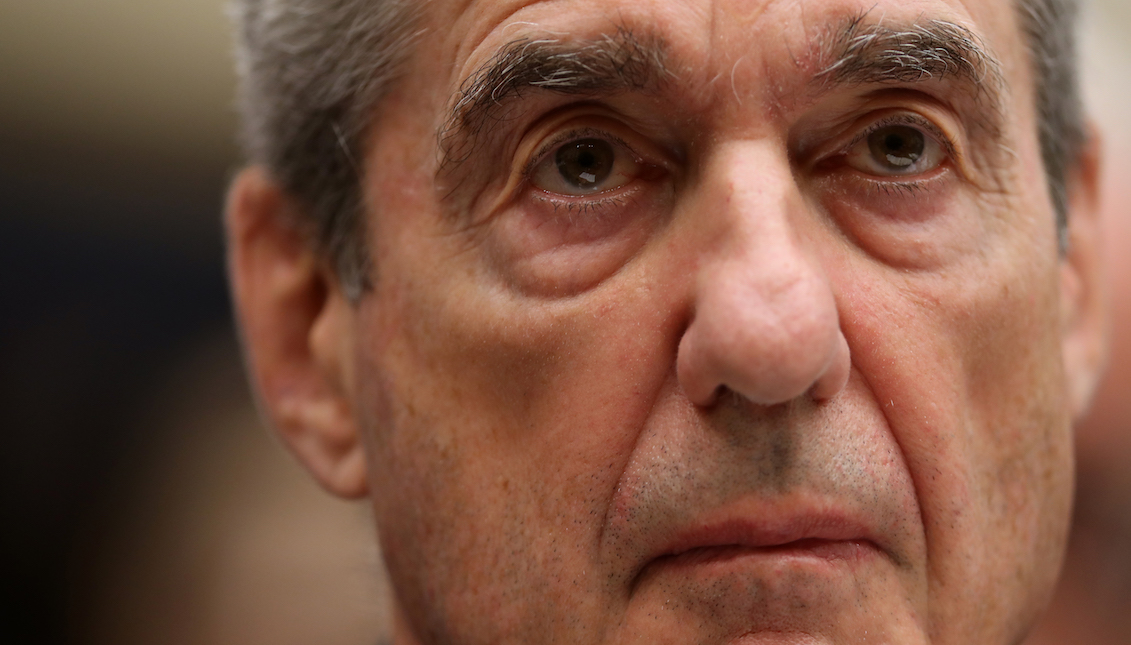
Forget about ‘Collusion.’ We need an investigation
The last two years in politics in the United States have been framed by the ongoing saga of the Russia investigation and the extent President Donald Trump participated in it.
While the chaotic and nonsensical presidential rhetoric argued that the investigation was a "witch hunt," the Office of Special Counsel Robert Mueller kept replying - with a deafening silence.
That silence continued up until the moment when what is now referred to as the Mueller Report was published. The findings of the report left the public with one narrative: Russia had interfered in the US elections, members of the president’s team had aided and abetted it and there was evidence that suggested that the president had tried to obstruct the investigation.
However, Mueller and his team refused to conclude whether or not Trump was guilty of any charges of obstruction of justice, in part, the report acknowledged, to toe the Justice Department line that a sitting president cannot be indicted with a crime.
But neither did they absolve him of any responsibility.
That is why Mueller's testimony before Congress was so important.
At a critical time, when President Donald Trump and the Republican Party have exceeded the traditional definition of tribalism, the apparent apathy of the Democrats was nerve-racking.
We needed Mueller to make things clear.
“Did you totally exonerate the president?” Judiciary Chairman Jerrold Nadler (D-N.Y.) asked Special Counsel Robert Mueller during his House testimony on Wednesday.
“No,” Mueller said.
During the long-awaited testimony, both Republicans and Democrats tried to make the most of the five minutes that each representative had to question the investigator.
While Democrats praised him as a patriot and a hero, Republicans overwhelmed him with rapid-fire questions. In the same way, while the former focused on the alleged crimes committed by President Donald Trump, the latter sought ways to discredit Mueller from every angle.
And so, the game was locked.
However, Mueller made three things clear:
1. Trump is not exonerated from any charge of obstruction of justice.
CONTENIDO RELACIONADO
2. Trump could be tried for obstruction of justice after leaving office.
3. Talking about "collusion" is the Achilles heel of the whole discussion.
“The investigation did not establish that members of the Trump campaign conspired with the Russian government in its election interference activities,” Mueller said. “We did not address ‘collusion,’ which is not a legal term. Rather, we focused on whether the evidence was sufficient to charge any member of the campaign with taking part in a criminal conspiracy. It was not.”
So, in spite of the president's attempts to impede the investigation, Mueller and his team did not get enough material to determine conspiracy by its criminal, legal definition.
Logic tells us that "he who owes nothing, has nothing to fear," and Trump's earnestness to prevent the investigation to reach his inner circle documented in the report seems to stand on its own as a reason for urgency in an immediate investigation by Congress.
And Mueller seems to agree.
“Does your report state there is sufficient factual and legal basis for further investigation of potential obstruction of justice by the president?” Rep. Sheila Jackson Lee (D-Tex.) asked.
“Yes,” Mueller replied.
If this is not a direct invitation to an investigation by the Judiciary Committee, what is it?
In one way or another, and if the internal differences of the Democratic Party allow it, the next few months should ensure a continued examination of the actions of President Trump detailed in the Mueller Report, and a case that is far from closed.










DEJE UN COMENTARIO:
¡Únete a la discusión! Deja un comentario.